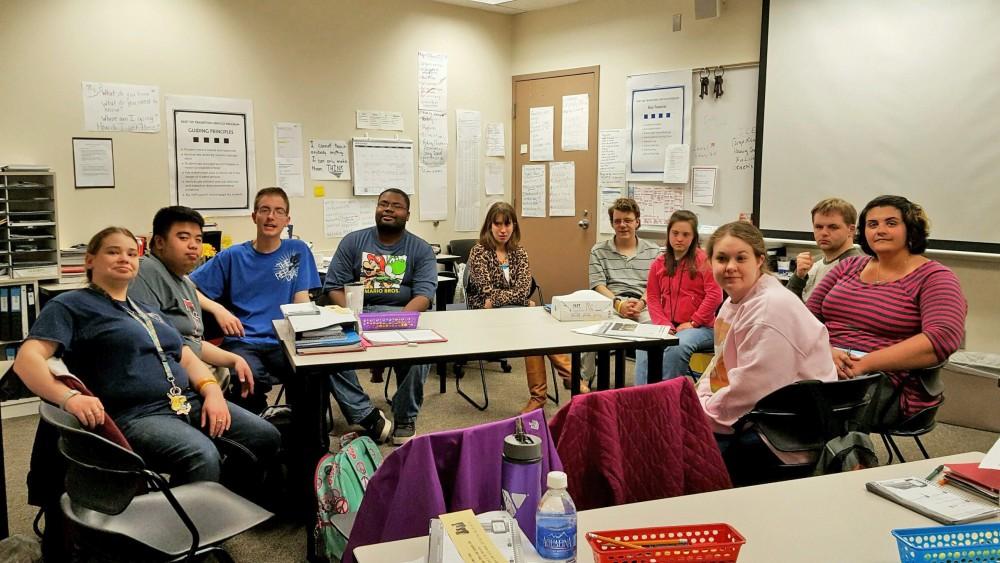Occupational program transitions special needs students

GVL / Courtesy – Kathryn Ciungan The Community Transition Campus program (CTC)
May 9, 2016
Independence is often viewed as a vital factor to surviving day-to-day life. To each individual, this concept is understood differently. For the young adults in the Community Transition Campus program, gaining independence is the key component in shaping their futures.
The Community Transition Campus program (CTC), formerly known as Community-Based Occupational Training, has existed in the Eberhard Center of downtown Grand Rapids since 1988. The program focuses on mentoring students from the ages of 18 and 26 who live with disabilities.
The focus of the program is geared toward teaching life skills, including: Vocational training, job skills, resume building and time management.
CTC students have the opportunity to volunteer at various businesses in the community to gain work experience. Past students have worked at places such as Family Dollar, Panera Bread, Mercy Health and Mary Free Bed Rehabilitation Hospital.
In the past, each participant would complete all community work collectively at each location, regardless of personal preference. Three years ago, the CTC program adopted the “Empowerment Model” which is a method of learning guiding students to use personal reflection to decide and take control of their futures.
Recently, the program has become much more individualized. CTC students work alongside education training specialists to determine the locations they desire to work at, and based on personal interests. The students learn how to create their own agendas and work schedules, instead having the schedules planned out for them.
Bethany Neveau, who works as a CTC instructor, said the majority of the work done by CTC students is non-paid and intended for building experience. However, a few have acquired part-time jobs. Of the 13 students in this year’s class, six now hold part-time jobs.
“I see (this program) as a last step of education,” said Kathy Duffield, an education training specialist in the CTC program. “When they are 26, we would have them in a job if they were able to handle it, and we would make sure their week was full when they were gone from us, so it’s kind of like building their future and helping them shape their vision of the future.”
At the beginning of the year, all CTC students create an individual learning plan, a process which allows the students to determine where they see themselves in the future and create a plan to achieve personal goals.
With the help of CTC teachers, family and friends, each student brainstorms a list of interests and priorities. All recorded information is kept organized in a personal binder, readily available for use at each class session.
“Things you keep (in your ILP) would be stuff you’re working on right now. If you’re working towards getting a job, you focus on applying for jobs, like doing online applications,” said Alan Storey, who is a student in the CTC program. “My ILP was working on getting a job, which I accomplished.”
Currently, the CTC program is pursuing more interaction between the students at Grand Valley State University and the young adults in the program. The program has been a part of GVSU’s downtown campus for the past 27 years, yet few students are aware of it.
By gaining more recognition, the hope is that GVSU students will feel comfortable enough to make plans with the students from CTC, or simply stop by the classroom for a few minutes.

























